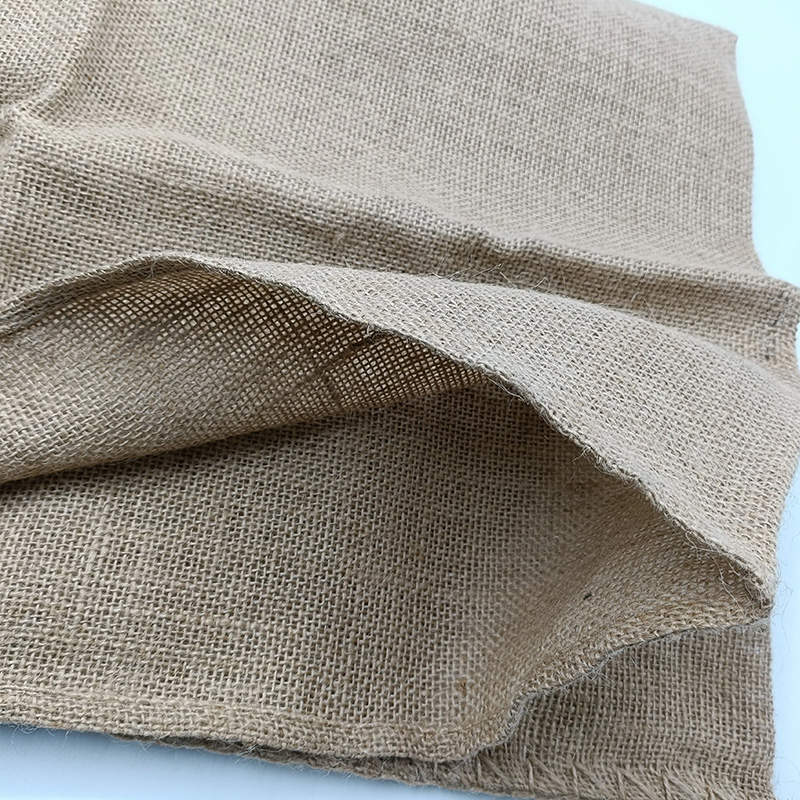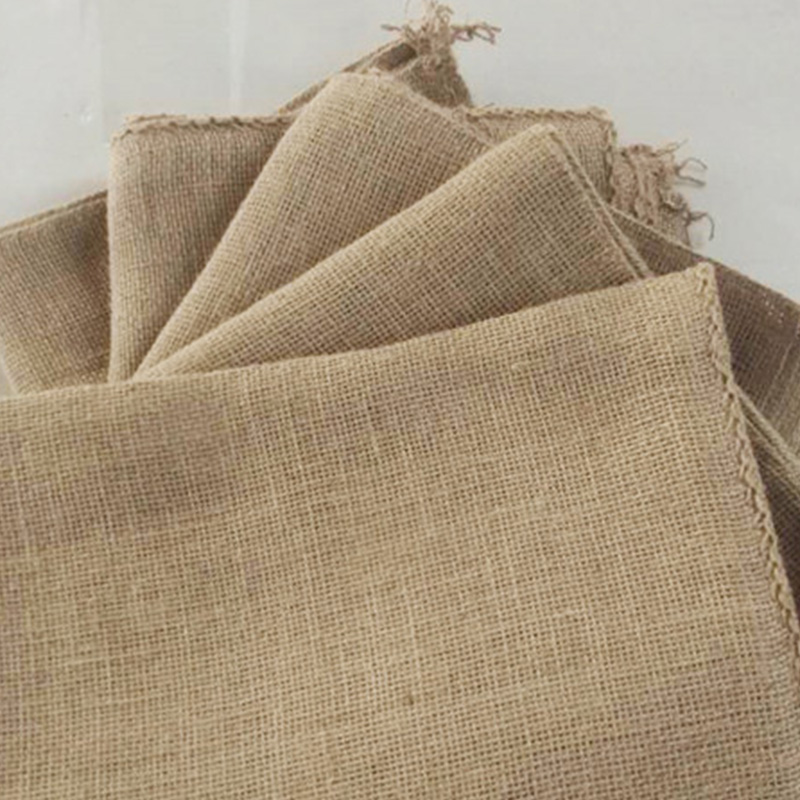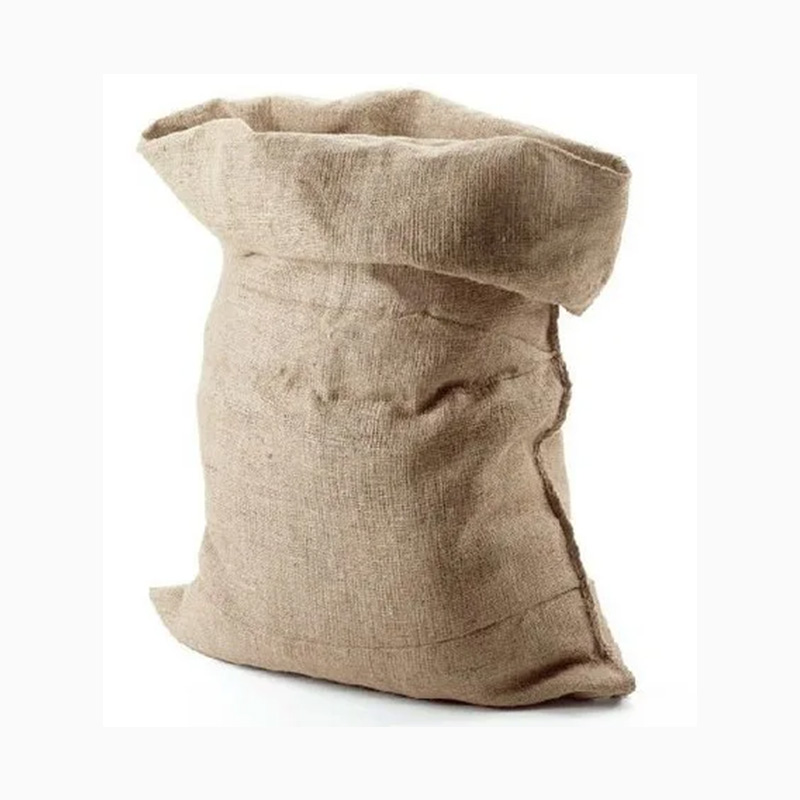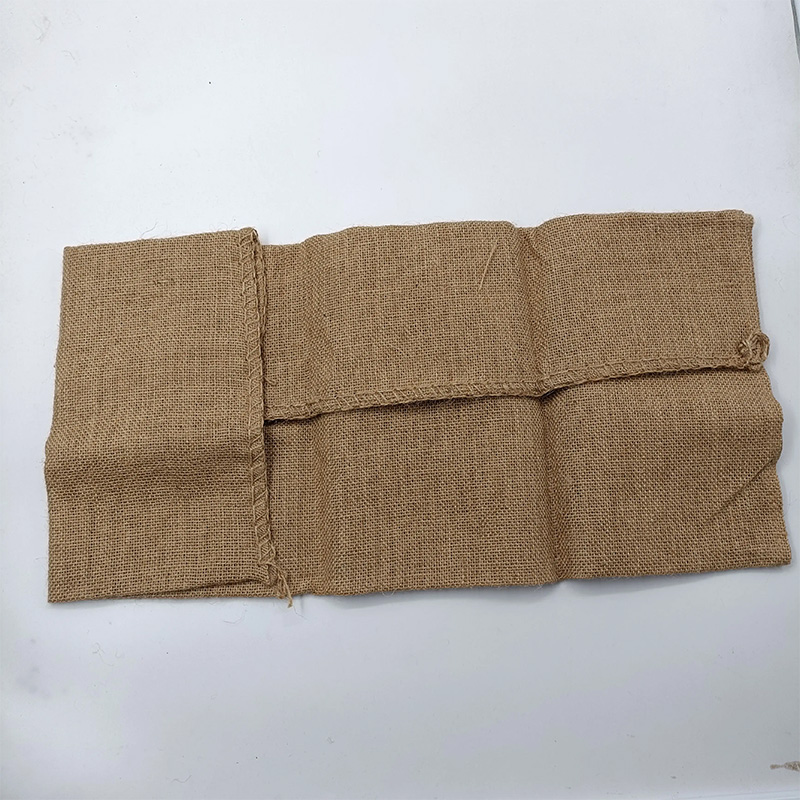Jute Bags Bulk: Wholesale Custom Totes, Gift & Wine Bags
The Strategic Advantage of jute bags bulk in Modern Supply Chains
In an era defined by increasing environmental consciousness and supply chain optimization, the demand for sustainable and cost-effective packaging solutions is paramount. This detailed analysis delves into the multifaceted advantages of jute bags bulk, offering a comprehensive look at their manufacturing, technical specifications, diverse applications, and strategic benefits for B2B enterprises. As industries pivot towards eco-friendly alternatives, jute, a natural cellulosic fiber, stands out as a superior choice, providing robust and biodegradable packaging solutions that align with global sustainability goals and stringent regulatory requirements.
The global market for natural fiber packaging is experiencing significant growth, driven by consumer demand and corporate social responsibility initiatives. Projections indicate a compound annual growth rate (CAGR) exceeding 6% for eco-friendly packaging materials, positioning natural fibers like jute at the forefront of this expansion. For businesses seeking reliable, large-volume packaging, procuring jute bags bulk presents a strategic opportunity to reduce operational costs, enhance brand image, and comply with evolving environmental standards. Whether it's for agricultural commodities, industrial parts, or retail packaging, the versatility of jute makes it an indispensable asset.
Comprehensive Manufacturing Process of Jute Bags
The production of jute bags bulk involves a meticulous process, beginning with the cultivation and harvesting of jute plants (Corchorus olitorius and Corchorus capsularis). Understanding this process is crucial for appreciating the inherent quality and durability of the final product. The manufacturing stages ensure that the bags meet specific technical and performance criteria for various industrial applications.
Process Flow: From Fiber to Finished Bag
- Retting: Jute stalks are submerged in water for several days to soften the tissues and separate the fibers. This bio-chemical process is critical for achieving high-quality fibers.
- Stripping & Washing: Fibers are manually or mechanically stripped from the stalks, then washed and dried to remove impurities.
- Batching: Dried jute fibers are treated with a mixture of water, oil, and emulsifiers to make them pliable and suitable for spinning. This process enhances the flexibility and spinnability of the fibers.
- Carding: Fibers are fed into carding machines to straighten and arrange them into a continuous sliver, aligning the individual fibers parallel to each other.
- Drawing & Spinning: Multiple slivers are combined and drawn out to create a uniform roving, which is then spun into yarn. The yarn count and twist are critical for the final fabric strength.
- Weaving: The jute yarn is woven on power looms to create various fabric constructions, such as hessian (burlap), sacking, or specialized geo-textiles. This determines the bag's texture, density, and strength.
- Finishing: The woven fabric undergoes various finishing treatments, including calendering, pressing, and sometimes laminating (e.g., with a thin PP film for moisture resistance), depending on the end-use.
- Cutting & Stitching: The finished fabric is cut to specified dimensions and expertly stitched using high-speed industrial sewing machines to form the final bag. Reinforced stitching is often applied to stress points.
- Quality Control: Each batch of bags undergoes rigorous testing against international standards like ISO 9001 for quality management and ISO 14001 for environmental management. Key parameters tested include tensile strength, tear resistance, seam strength, and uniform weight distribution.
The typical service life of a standard jute bag, when used under normal conditions, ranges from 1 to 3 years, with potential for extended life depending on storage and handling. Jute bags are also fully biodegradable, breaking down naturally within a few months post-disposal, returning organic matter to the soil.

Image 1: High-quality jute fibers prepared for spinning.
Technical Specifications and Performance Parameters
For B2B buyers, understanding the technical specifications of jute bags bulk is essential for selecting the right product for specific applications. These parameters directly influence performance, durability, and cost-effectiveness. Our jute bags are manufactured to precise standards, ensuring consistent quality and reliability.
Typical Product Specification Table: Jute Sack Burlap Bag
| Parameter | Specification | Relevant Standard |
|---|---|---|
| Material | 100% Natural Jute Fiber (Corchorus olitorius/capsularis) | ASTM D6818 |
| Fabric Type | Hessian (Burlap) or Sacking | ISO 2076 |
| Bag Size Range (WxL) | From 30x45 cm up to 75x105 cm (customizable) | Industry Standard |
| Fabric Weight (GSM) | 180 GSM - 400 GSM (e.g., 200 GSM for standard coffee bags) | ISO 3801 |
| Weave Count (Warp x Weft) | 8x8, 10x10, 11x12 (threads/inch) | ASTM D3775 |
| Tensile Strength | Warp: ≥ 500N, Weft: ≥ 400N (for 200 GSM) | ISO 13934-1 |
| Tear Strength | Warp: ≥ 80N, Weft: ≥ 70N | ISO 13937-2 |
| Stitching | Double-folded, machine-stitched hems with chain or lock stitch | Industry Best Practice |
| Capacity | 10 kg to 100 kg (depending on bag size and fabric weight) | Calculated Load Bearing |
| Biodegradability | 100% Biodegradable & Compostable | ISO 14855-1 |

Image 2: An array of finished jute bags, showcasing varied sizes.
Diverse Application Scenarios and Target Industries
The robust and eco-friendly nature of jute bags bulk makes them ideal for a wide array of applications across numerous industries. Their versatility extends beyond simple packaging, offering practical solutions where breathability, strength, and environmental compatibility are key.
Primary Target Industries:
- Agriculture & Food Processing: Jute bags are indispensable for storing and transporting commodities like coffee beans, cocoa, rice, wheat, potatoes, onions, and other produce. Their breathable nature prevents moisture build-up and spoilage, a critical advantage over synthetic alternatives. For instance, coffee industry standards often mandate jute for green bean transport due to its breathability and lack of plasticizers. This applies equally to `jute tote bag bulk` and `small jute bags wholesale` for smaller produce or specialized goods.
- Construction & Engineering: Used for sandbags (erosion control, flood protection), packaging cement, and transporting construction aggregates. The inherent strength of jute prevents tearing and provides reliable containment on job sites.
- Horticulture & Landscaping: Ideal for tree baling, root ball wrapping, and transporting saplings. Jute's biodegradability allows for direct planting with the bag, minimizing transplant shock and waste.
- Textile & Apparel (Eco-conscious Brands): Used for packaging raw materials or even as retail packaging for eco-friendly products. `Jute gift bags wholesale` and `personalised jute bags wholesale` cater specifically to branding and promotional needs.
- Retail & Promotional: Custom-printed jute bags serve as excellent promotional items, reusable shopping bags, or stylish packaging for specialty goods. `Jute wine bags wholesale` are a prime example, offering elegant and sustainable packaging for beverages.
- Logistics & Shipping: As a general-purpose, robust packaging material for various bulk goods where breathability or natural material is preferred over plastics, minimizing condensation issues during transit.
In typical application scenarios, the advantages of `jute bags in bulk` are evident. For example, in the grain industry, utilizing jute bags significantly reduces post-harvest losses by allowing adequate air circulation, preventing moisture accumulation, and inhibiting fungal growth, thereby ensuring commodity quality over extended storage periods. This translates directly into improved energy saving through reduced need for artificial drying and enhanced product integrity, making them highly resilient against common storage challenges.
Key Technical Advantages and Environmental Benefits
Opting for jute bags bulk offers a compelling set of technical and environmental advantages that distinguish them from synthetic alternatives. These benefits contribute to operational efficiency, cost savings, and enhanced corporate social responsibility.
Technical & Performance Advantages:
- High Tensile Strength: Jute fibers possess impressive natural strength, allowing bags to withstand considerable weight and handling stress, crucial for bulk goods transport. A typical jute bag can safely carry 50-75 kg, making it reliable for heavy-duty applications.
- Breathability: The porous weave of jute fabric ensures excellent air circulation, which is vital for agricultural products like coffee, potatoes, and grains. This property prevents condensation, moisture-related spoilage, and extends the shelf life of perishable goods.
- Anti-Static Properties: Jute is naturally anti-static, making it a safer choice for packaging certain materials where static discharge could be a concern.
- Durability & Reusability: Jute bags are designed for multiple uses, contributing to a circular economy model. Their robust construction allows them to be cleaned and reused, providing long-term value.
- Cost-Effectiveness: While initial costs may vary, the reusability and natural abundance of jute can lead to significant long-term cost savings compared to single-use packaging.
Environmental Advantages:
- 100% Biodegradable & Compostable: Jute bags naturally decompose within months, returning nutrients to the soil without leaving microplastic residues. This stands in stark contrast to synthetic bags which can persist for hundreds of years.
- Renewable Resource: Jute is a rapidly growing plant, typically harvested within 4-6 months, making it a highly sustainable and renewable resource. It requires minimal pesticides and fertilizers.
- Carbon Sequestration: Jute plants absorb significant amounts of CO2 from the atmosphere during their growth cycle, contributing positively to climate change mitigation efforts. Studies show jute cultivation can sequester up to 15 tons of CO2 per hectare annually.
- Reduced Plastic Pollution: By replacing synthetic packaging, jute bags directly combat the global plastic pollution crisis, especially in marine environments.
- Non-Toxic: Jute is a natural fiber, free from harmful chemicals often found in synthetic materials, ensuring safety for food contact applications and environmental health.

Image 3: Jute bags being utilized for bulk agricultural storage, demonstrating breathability.
Vendor Comparison and Customized Solutions
Choosing the right supplier for jute bags bulk is critical for ensuring quality, reliability, and consistency in your supply chain. Key factors beyond mere price must be considered to secure a partnership that adds genuine value.
Key Vendor Comparison Criteria:
| Criterion | Our Offering | Generic Vendor Profile |
|---|---|---|
| Certifications | ISO 9001, ISO 14001, SEDEX Compliant, Organic Certified options. | May have basic quality certifications; less likely to have comprehensive environmental/social audits. |
| Quality Control | Multi-stage inspection (fiber, yarn, weaving, stitching, final packaging) with in-house labs. | Typically relies on spot checks or third-party audits only at final stage. |
| Customization Capabilities | Extensive customization: size, GSM, weave, printing (up to 4 colors), handle types, lining (PP/LDPE). | Limited customization options; often only standard sizes and basic printing. |
| Minimum Order Quantity (MOQ) | Flexible MOQ tailored to specific projects, supporting diverse business scales. | Rigid, often high MOQs that may exclude smaller or specialized orders. |
| Sustainability Practices | Ethical sourcing, fair labor practices, waste reduction, energy efficiency in manufacturing. | May offer eco-friendly products but without verifiable ethical sourcing or transparent manufacturing. |
| Lead Time Reliability | Proven track record of on-time delivery; robust logistics network. | Variable lead times; potential for delays due to limited capacity or logistics. |
Customized Solutions for Your Business Needs:
Recognizing that every business has unique requirements, we offer extensive customization options for jute bags bulk. This allows clients to procure bags that are perfectly aligned with their brand identity, product specifications, and logistical demands.
- Size and Dimensions: Tailored to the precise volume and weight of your products, from small `jute gift bags bulk` to large industrial sacks.
- Fabric Weight (GSM): Adjusting the fabric density for enhanced durability or lighter applications, directly influencing the bag's strength and cost.
- Printing and Branding: High-quality, multi-color printing of logos, product information, and regulatory marks, offering powerful brand visibility for `personalised jute bags wholesale`.
- Lining Options: Internal laminations (e.g., with food-grade polypropylene or polyethylene) for moisture barrier, preventing contamination, or fine particle containment. This is often crucial for sensitive food products.
- Handle Styles: Various handle options for `jute tote bag bulk`, including self-jute, cotton webbing, or padded handles, enhancing user comfort and aesthetics.
- Special Features: Drawstrings, windows, or internal compartments can be integrated for specialized functions, such as in `jute wine bags wholesale` or specific promotional kits.
Application Case Studies and Customer Success
Our commitment to quality and customization has enabled numerous businesses to optimize their packaging strategies with `jute bags in bulk`. These case studies highlight real-world applications and the tangible benefits our clients have experienced.
Case Study 1: Specialty Coffee Importer
A leading European specialty coffee importer required an eco-friendly, breathable solution for transporting premium green coffee beans from various origins to their roasting facilities. They historically faced issues with moisture build-up and limited reusability with their previous synthetic bags. We provided them with custom-sized, 200 GSM hessian jute bags bulk with reinforced stitching.
- Solution: Custom-printed, breathable jute bags (60x90 cm, 70kg capacity).
- Outcome: 15% reduction in moisture-related spoilage during transit, significant improvement in bean quality retention, and a 20% extension in storage life. The bags’ reusability reduced their overall packaging waste by 30%. Customer feedback highlighted the enhanced brand perception among their ethically-conscious clientele.
Case Study 2: Organic Produce Distributor
An organic produce distributor needed a sustainable, chemical-free packaging option for their bulk potatoes and onions that could also be given to end-consumers for reusability. They sought `small jute bags wholesale` for their retail partners and larger sacks for warehouse storage.
- Solution: Assortment of unlined jute mesh bags (for breathability) and solid hessian bags (for robust transport), ranging from 5 kg to 50 kg capacity, with custom branding.
- Outcome: Achieved a 10% reduction in spoilage during distribution due to superior ventilation. The branded `jute gift bags bulk` for smaller retail packs were highly popular, reinforcing the distributor's organic and sustainable image, leading to increased customer loyalty.

Image 4: Personalized jute bags ready for shipment, showcasing branding capabilities.
Trust and Transparency: FAQ, Lead Times, Warranty, and Support
Frequently Asked Questions (FAQ):
A1: Our standard jute bags are made from natural fibers suitable for direct contact with many food commodities. For specific food-grade requirements, we offer options with internal food-safe laminations (e.g., LDPE/PP liner) that comply with relevant FDA/EU regulations. Please specify your needs.
Q2: What is the typical lead time for a bulk order?A2: Lead times vary depending on order quantity, customization requirements, and current production schedules. Generally, for standard jute bags bulk orders, lead time ranges from 4-6 weeks after order confirmation and design approval. Expedited options may be available upon request.
Q3: Can jute bags be stored long-term, and what are the best conditions?A3: Yes, jute bags can be stored long-term (up to several years) if kept in a cool, dry, well-ventilated area, away from direct sunlight and excessive humidity. Proper storage prevents degradation and maintains material integrity.
Q4: What are your quality assurance processes?A4: We adhere to strict ISO 9001 quality management standards. This includes raw material inspection, in-process quality checks during spinning and weaving, and final inspection of finished bags for dimensions, stitching, print quality, and strength parameters (tensile, tear). We also conduct random batch testing.
Lead Time & Fulfillment Details:
We understand the importance of timely delivery in B2B operations. Our robust supply chain and production planning aim for efficient order fulfillment.
- Order Processing: 3-5 business days for standard orders, with a dedicated account manager for custom projects.
- Production: Typically 3-5 weeks for manufacturing, depending on volume and customization complexity.
- Shipping: We offer various shipping options (FOB, CIF, DDP) via sea or air cargo, with estimated transit times provided upon quotation. We partner with reliable global logistics providers to ensure seamless delivery.
Warranty Commitments:
We stand behind the quality of our products. All `jute bags in bulk` are warranted against manufacturing defects for a period of 6 months from the date of shipment. This warranty covers material or workmanship flaws under normal use conditions. Any claims must be reported within this period with supporting documentation. Our commitment to quality ensures a product you can trust.
Customer Support Information:
Our dedicated customer support team is available to assist with inquiries, order tracking, and any post-purchase support you may require.
- Contact Email: sales@xtshuoding.com
- Phone: +86-XXX-XXXX-XXXX (placeholder, replace with actual phone)
- Business Hours: Monday - Friday, 9:00 AM - 6:00 PM (GMT+8)
- Technical Support: Our expert team can provide guidance on product selection, technical specifications, and application suitability.
Conclusion: The Future is Sustainable with Jute
The strategic adoption of jute bags bulk offers B2B enterprises a powerful blend of economic, operational, and environmental advantages. From the meticulous manufacturing process to their diverse application across industries like agriculture, construction, and retail, jute bags represent a forward-thinking packaging solution. Their inherent strength, breathability, and complete biodegradability align perfectly with global demands for sustainable supply chains and responsible business practices. By partnering with a reputable vendor, businesses can leverage customized jute solutions to enhance product integrity, optimize logistics, and significantly bolster their brand's commitment to sustainability. Embracing jute is not just a choice for packaging; it's an investment in a greener, more resilient future.
Authoritative References
- Food and Agriculture Organization of the United Nations (FAO). "Jute & Kenaf: Natural Fibers for a Sustainable Future."
- International Jute Study Group (IJSG). "Market Review of Jute and Jute Products."
- Textile Institute. "Manual of Textile Technology - Jute."
- ISO (International Organization for Standardization). Relevant standards: ISO 9001, ISO 14001, ISO 2076.
- American Society for Testing and Materials (ASTM). Relevant standards: ASTM D6818, ASTM D3775.
- European Bioplastics. "Bioplastics Market Data."
Share
-
Lithium Battery Welding Machine | High-Precision, Fast, SafeNewsNov.17,2025
-
Aluminium Guide Roller | Anodized, Lightweight, Low-NoiseNewsNov.17,2025
-
Tofu Cat Litter Bulk – Eco, Low-Dust, Fast Clumping SupplyNewsNov.17,2025
-
Equipment for Lithium Cell Assembly | Automated & PreciseNewsNov.10,2025
-
Square File Tool – Precision Cut, Hardened Steel, VersatileNewsNov.10,2025
-
Lithium Ion Battery Assembly Machine | Automated, High-SpeedNewsNov.10,2025







